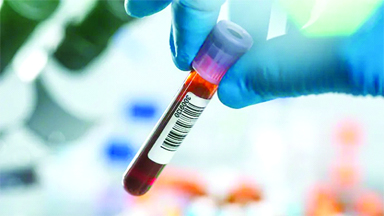
The US has approved its first-ever blood test to help detect Alzheimer’s disease in its early stages, offering hope to millions facing the devastating neurological condition. Alzheimer’s disease is the most common type of dementia in which a person’s brain begins to shrink as they age. This brain disorder leads to memory loss and cognitive skills.
Symptoms of this disease worsen over time. The disease is believed to occur due to the presence of two types of protein in the brain: amyloid plaques and tau plaques.
Currently, there’s no cure for Alzheimer’s, but medicines have been approved that slow the disease progression.
The new blood test, developed by Fujirebio Diagnostics, works by measuring the ratio of the two specific proteins in the blood (amyloid and tau).
Until now, these plaques could only be identified through costly PET scans or invasive spinal fluid tests.
The US Food and Drug Administration (FDA) announced the approval on Friday, marking what experts believe could be a turning point in how the disease is diagnosed and managed.
“Alzheimer’s disease impacts too many people, more than breast cancer and prostate cancer combined,” said FDA Commissioner Dr. Marty Makary.
He added, “Knowing that 10% of people aged 65 and older have Alzheimer’s, and that by 2050 that number is expected to double, I am hopeful that new medical products such as this one will help patients.”
The new blood test is not a standalone diagnostic tool, it is approved for use in clinical settings for patients who are already showing signs of cognitive decline.
But it promises a simpler and more accessible method to screen for the disease, which could allow doctors to confirm Alzheimer’s earlier and begin treatment when it’s most effective.
There are currently two FDA-approved drugs, lecanemab and donanemab, that target the amyloid plaques associated with Alzheimer’s.





Be the first to comment